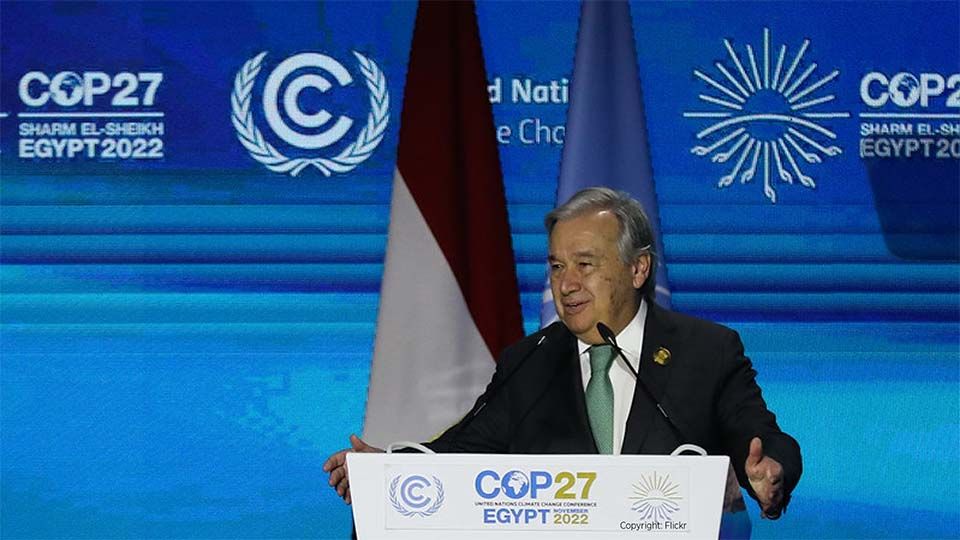At the launch of a roadmap for financial institutions and businesses to achieve net zero at COP27 today, UN secretary-general, António Guterres, has called current pledges “bogus”, calling for them to be aligned with the new guidance.
“I have a message to fossil fuel companies and their financial enablers,” he said.
“So-called ‘net-zero pledges’ that exclude core products and activities are poisoning our planet. They must thoroughly review their pledges and align them with this new guidance. Using bogus ‘net-zero’ pledges to cover up massive fossil fuel expansion is reprehensible.”
He was speaking in Sharm el-Sheikh at the launch of the report, Integrity Matters: Net Zero Commitments by Business, Financial Institutions, Cities and Regions, by the expert group Guterres set up at COP26 last year that is chaired by Catherine McKenna.
The report sets out a roadmap for firms and recommends they have short-, medium- and long-term absolute emissions reduction targets across their value chain at least in line with the latest Intergovernmental Panel on Climate Change net-zero greenhouse gas emissions modelled pathways that limit warming to 1.5°C. Firms are recommended to do this for Scope 1, 2 and 3 emissions.
It lays out stricter guidelines than other voluntary groups have, such as requiring firms to not invest in new fossil fuel supply or deforestation.
“Non‑state actors cannot claim to be net zero while continuing to build or invest in new fossil fuel supply. Coal, oil and gas account for over 75% of global greenhouse gas emissions. Net zero is entirely incompatible with continued investment in fossil fuels. Similarly, deforestation and other environmentally destructive activities are disqualifying,” McKenna stated in the report.
Further recommendations for avoiding greenwash include:
- Non-state actors not buying cheap carbon credits that “often lack integrity instead of immediately cutting their own emissions across their value chain.” Credits, however, could be used above and beyond 1.5°C aligned interim targets to boost flows to underinvested areas.
- Not focusing on reducing intensity emissions rather than absolute emissions and not tackling only a part of emissions rather than emissions from the full value chain.
- Not lobbying to undermine government climate policies, either directly or indirectly through trade associations, for example. Aligning advocacy, governance and business strategies with climate commitments and aligning capital expenditures with net-zero targets. Linking executive pay to meeting climate goals.
- Regulation being introduced to “level up the playing field” around setting net-zero targets. Verification and enforcement in the voluntary space is challenging and competitiveness concerns arise where many large non-state actors have not yet made net-zero commitments, McKenna stated.
“Targets must cover all greenhouse gas emissions and all scopes of emissions,” Guterres said. “For financial institutions, this means all financed activities.”








